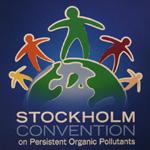What is the Stockholm Convention?

The Stockholm Convention on Persistent Organic Pollutants 2001 is a international agreement by the nations of the world to address the global chemical pollution. Its objective is to protect human health and the environment from persistent organic pollutants or POPs. POPs include the organochlorine pesticides DDT, endrin, dieldrin, aldrin, chlordane, toxaphene, heptachlor, mirex, and hexachlorobenzene, as well as the industrial chemicals and by-products PCBs, dioxins, and furans. These initial twelve chemicals, the 'poisons without passports' were chosen because they have the common hazardous characteristics of toxicity, persistence and bioaccumulation, and are capable of travelling vast distances via water and air.
The Convention aims to eliminate the production, use and emissions of POPs while preventing the introduction of new chemicals with POP-like characteristics and ensuring the environmentally sound destruction of POPs waste stockpiles. The Convention sets out the actions that country Parties must take to achieve this. It also requires country Parties to reduce and where feasible, eliminate releases of byproduct POPs chemicals.
Technical and financial assistance is offered to developing country Parties to help implement the Stockholm Convention.
